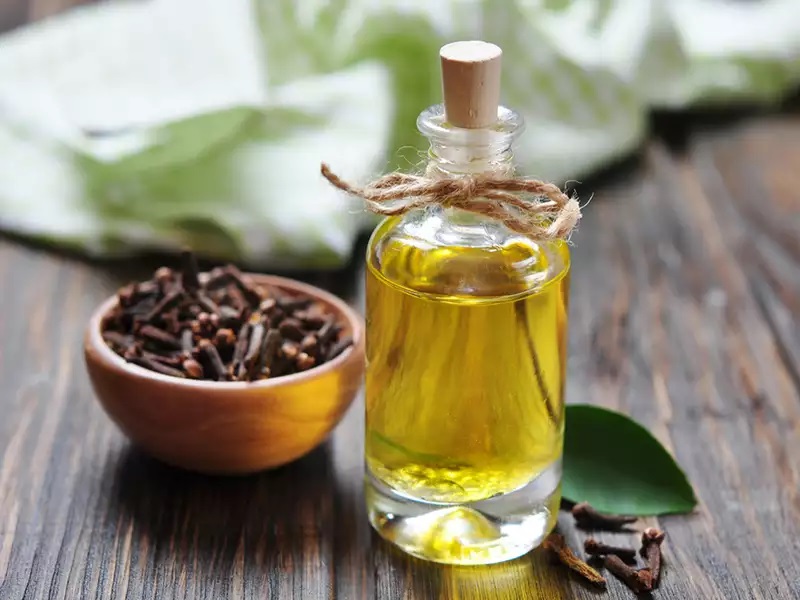We unleash your business potential by maximize the business innovation.
Send EmailEugenol Oil, Clove oil, Eugenol Essential Oil, Clove Essential Oil, Pure Eugenol, Natural Eugenol, Oil of Clove, 97-53-0
Product Overview: Eugenol / Clove Oil (CAS: 97-53-0)
Chemical Name: Eugenol
Other Names: Clove Oil, Eugenol Oil, Öjenol, Öjenol Yağı
CAS Number: 97-53-0
Molecular Formula: C₁₀H₁₂O₂
Molecular Weight: 164.20 g/mol
Appearance: Colorless to pale yellow liquid
Odor: Spicy, clove-like aroma
Melting Point: –7.5°C
Boiling Point: 254°C
Density: 1.06 g/cm³
🌿 Source and Composition
Eugenol is a naturally occurring phenolic compound found in the essential oils of:
-
Clove (Syzygium aromaticum)
-
Cinnamon (Cinnamomum verum)
-
Basil, bay leaf, and other aromatic plants
The product may be:
-
Pure Eugenol (≥99.5%) – chemically isolated and standardized
-
Clove Oil Extract – containing 70–95% eugenol, depending on botanical origin and extraction method
Betakim’s page does not specify the exact eugenol content, nor does it clarify whether the product is a pure compound or a natural extract, which is critical for regulatory classification under KKDİK, REACH, CLP, and SEA.
⚙️ Applications
| Sector | Use |
|---|---|
| Medical/Dental | Antiseptic, analgesic (especially in dentistry) |
| Cosmetics | Fragrance and personal care formulations |
| Food Industry | Flavoring agent |
| Chemical Synthesis | Intermediate for other compounds |
| R&D | Used in formulation and analytical studies |
🏷️ English Alias List for Eugenol (CAS: 97-53-0)
-
Eugenol
-
Eugenol Oil
-
Clove Oil
-
Eugenol Essential Oil
-
Clove Essential Oil
-
Pure Eugenol
-
Synthetic Eugenol
-
Natural Eugenol
-
Oil of Clove
-
Phenylpropene Derivative
-
4-Allyl-2-methoxyphenol (IUPAC name)
CAS No: 97-53-0
Eugenol is a compound known for its antiseptic and analgesic properties.
Physical and Chemical Properties
-
Chemical Formula: C10H12O2
-
Molecular Weight: 164.20 g/mol
-
Appearance: Colorless to pale yellow liquid
-
Melting Point: -7.5°C
-
Boiling Point: 254°C
-
Density: 1.06 g/cm³
-
Odor: Spicy, clove-like aroma
Other Names
-
4-Allyl-2-methoxyphenol
Common Name
-
Clove oil compound
E Code
-
Eugenol does not have an assigned E code.
Sources
Eugenol is found in the essential oils of various plants, including cloves (Syzygium aromaticum) and cinnamon (Cinnamomum verum). It is also present in basil and bay leaves.
Uses
-
Medical Uses: Eugenol is used in dentistry and wound care due to its antiseptic and analgesic properties.
-
Perfume Industry: It is valued for its spicy and warm aroma, making it a popular ingredient in perfumes.
-
Food Industry: Eugenol is used as a flavoring agent in food products.
-
Cosmetics: It is used in cosmetic and personal care products.
-
Research and Development: Eugenol is used as an intermediate in the synthesis of other chemical compounds in research and industrial applications.
Safety
Eugenol is generally considered safe when used in appropriate amounts, but it can be toxic in large doses. Always use it with caution and consult a healthcare professional if you have any concerns.
| Boiling point | 254 °C (lit.) |
|---|---|
| Density | 1.067 g/mL at 25 °C (lit.) |
| vapor pressure | <0.1 hPa (25 °C) |
| FEMA | 2467 | EUGENOL |
| refractive index | n20/D 1.541(lit.) |
| Flash point | >230 °F |
| storage temp. | 2-8°C |
| solubility | 2.46g/l |
| form | Liquid |
| pka | pKa 9.8 (Uncertain) |
| color | Clear pale yellow to yellow |
| Odor | at 10.00 % in dipropylene glycol. sweet spicy clove woody |
| Odor Type | spicy |
| Water Solubility | slightly soluble |
| Sensitive | Air Sensitive |
| JECFA Number | 1529 |
| Merck | 14,3898 |
| BRN | 1366759 |
| Dielectric constant | 6.1(18℃) |
| Stability | Stable. Combustible. Incompatible with strong oxidizing agents. |
| InChIKey | RRAFCDWBNXTKKO-UHFFFAOYSA-N |
| LogP | 1.83 at 30℃ |
| Substances Added to Food (formerly EAFUS) | EUGENOL |
| FDA 21 CFR | 177.2800; 310.545; 582.60 |
| CAS DataBase Reference | 97-53-0(CAS DataBase Reference) |
| EWG's Food Scores | 4-7 |
| FDA UNII | 3T8H1794QW |
| IARC | 3 (Vol. 36, Sup 7) 1987 |
| NIST Chemistry Reference | Eugenol(97-53-0) |
| EPA Substance Registry System | Eugenol (97-53-0) |
Eugenol oil is a colorless to pale yellow, aromatic oily liquid extracted from various essential oils, especially from clove, nutmeg, cinnamon, basil, and bay leaf. It has a pleasant, spicy, clove-like scent1.
Eugenol is known for its antiseptic, anesthetic, and anti-inflammatory properties. It's commonly used in dentistry for root canal treatments, as well as in cosmetics and food flavoring
Eugenol, also called clove oil, is an aromatic oil extracted from cloves that is used widely as a flavoring for foods and teas and as an herbal oil used topically to treat toothache and more rarely to be taken orally to treat gastrointestinal and respiratory complaints. Eugenol in therapeutic doses has not been implicated in causing serum enzyme elevations or clinically apparent liver injury, but ingestions of high doses, as with an overdose, can cause severe liver injury.

